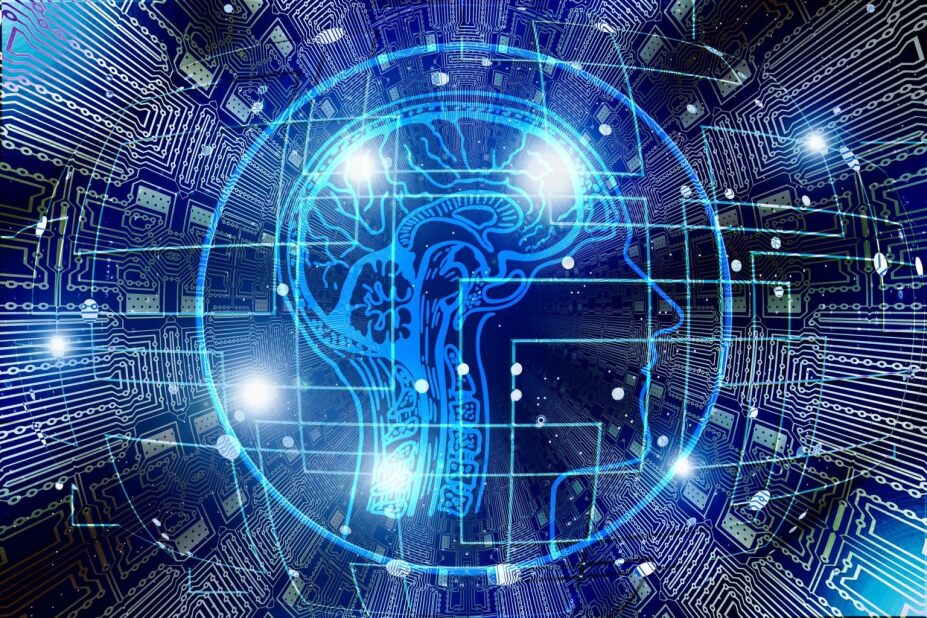“Every aspect of our lives will be transformed [by AI]”, potentially “the biggest event in the history of our civilization” -Stephen Hawking
We are already seeing the tremendous inroads that Artificial Intelligence (AI) has made in virtually every industry. Despite AI’s rapid expansion, the Artificial Intelligence technology itself is still evolving. AI points towards a future where machines not only do physical work, as they have done since the industrial revolution, but also the “thinking” work – planning, strategizing, prioritizing and making decisions.
In fact, the definition of what is considered Artificial Intelligence keeps shifting. What used to be called AI even several years ago is now just widely used and familiar technology, and no longer resides under the AI umbrella. It might be the only field of technology where its definition and scope change as technology advances and gets adopted.
Artificial Intelligence can already sense, think, and act. AI can hear, see, and speak through Natural Language Processing, speech recognition and Machine Vision. It can understand, perceive and assist via Machine Learning, Deep Learning, and planning and scheduling. And AI can act in physical, cognitive, and creative ways through robotic process automation, machine translation, and adaptive systems. We are already experiencing many of these powerful abilities on a daily basis, perhaps even without knowing it, as AI gets integrated into our everyday applications.
Yet to us, the most fascinating thing about AI is that it can make people superhuman and at the same time, help us be just more ... human. The future is not “Humans vs AI” but rather “Humans + AI.”
Highlights from 2018
At the InterSystems Global Summit last October, attendees got an extensive overview of the current landscape and present and future capabilities of Artificial Intelligence. From superb keynotes to the company’s first AI Symposium, the breadth of current applications of AI on display was mind blowing. Just a few examples:
Affective Computing
Rosalind Picard shared touching stories that led her to discover several phenomena, including stress as a predictor of convulsive seizures. Founder and director of the Affective Computing research group at the MIT Media Lab, Dr. Picard coined the term “Affective Computing”, sometimes referred to as Artificial Emotional Intelligence, or Emotion AI. This interdisciplinary field includes devices and systems that recognize, interpret, process and simulate human emotions, fundamental to human experience. With this evolving technology, we can better understand the ways emotions impact health, learning, memory, behavior and social interaction. We can advance wellbeing by using new ways to communicate, understand, and respond to emotion. (Read more about Rosalind Picard and Affective Computing.)
AI-Enhanced Creativity
In addition, Dr. Gil Weinberg demonstrated AI’s applications in human creativity. His keynote showcased Shimon, the jazz-playing robot that uses algorithms and analytical thinking to give rise to new forms of creativity. With Shimon and other improvising robotic musicians, Dr. Weinberg has traveled the world, featuring this technology at the dozens of concerts and presentations in festivals and conferences such as SIGGRAPH, DLD and the World Economic Forum in Davos. Gil’s newest invention is a smartphone-enabled AI robotic musical companion that is designed to enhance listener’s musical experiences. (Read more about Gil Weinberg and robot-human collaboration.)
The Shifting Nature of AI
Dr. Babak Hodjat, the “inventor of Siri”, took us on a fascinating journey of AI through years and eras. He shared the evolution of technologies that used to be called Artificial Intelligence, but now are just commonplace tools. "Our tools are what define us as humans and allow us to change the world,” he said. Dr. Hodjat shared an impressive and thought-provoking panoply of what’s next for AI, including the dawn of artificial humans. He explored the themes discussed earlier in the day, including Affective Machine Learning. “Emotions are fundamental to human memory, and memory is not about the past, it is about the future”. (Read more about Babak Hodjat and the shifting nature of AI.)
Artificial Intelligence Predictions for 2019
The acceleration of AI applications will continue in 2019. We believe the following are the major trends to watch this year.
Open Source AI
As seen in other industries, open source increases collaboration and innovation, lowers development costs and shortens time to market.
Strengthening Cyber Security
As the number and complexity of cyber attacks increases, the need for intelligent systems capable of combating them grows as well.
Humanizing AI
The trend to humanize AI in order to increase our trust in AI applications will continue. The more ubiquitous Artificial Intelligence technologies become, the more important it is that people are comfortable with them and find underlying AI trustworthy.
Improving Language Processing
The impact of language will be more pronounced with Natural Language Processing (NLP) developments accelerating and becoming more personalized.
Productivity Growth
Application of AI to automation of tasks and processes can enable productivity growth and other benefits – not just for businesses of all sizes, but for entire economies in the US and globally.
AI is an Indispensable Technology
Artificial Intelligence covers a wide spectrum of applications and capabilities. It is already impacting every major industry and is poised to become as fundamental to us as computing is today. Key elements of Artificial Intelligence will continue to be woven into countless aspects of our daily lives, from the home to the hospital, from the smartphone you carry to the automobile you drive. The ultimate success of AI will be determined by how transparently and invisibly it fades from Hollywood and Silicon Valley hype into the practical fabric of human life.
For Social Media highlights from InterSystems #GlobalSummit18, see Artificial Intelligence in Action Twitter Moment.
For more Artificial Intelligence 2018 highlights and predictions, see our LinkedIn article.
About the Authors

LinkedIn & Twitter: @EvanKirstel

Irma Rastegayeva is a Consultant and Coach at the intersection of health, technology, humanity and storytelling. Following 20+ year career in product development, consulting and management, Irma combines deep technical expertise with patient advocacy and community engagement at eViRa.Health. Named in the Top 30 Women in Tech, Irma is recognized as a top influencer in DigitalHealth, HealthTech and IoT. Irma serves on the board of the American College of Healthcare Trustees.
LinkedIn & Twitter: @IrmaRaste





























